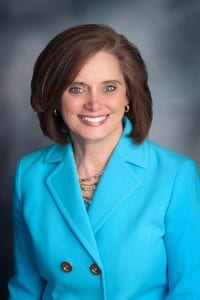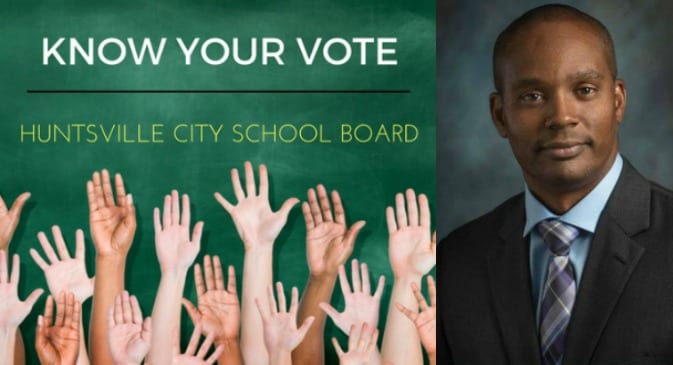Meet the School Board Candidates: Elisa Ferrell (District 3)


Q. What made you want to run for this office?
Simply stated, advocacy for students. I have extensive volunteer experience within the school system. I began in my child’s classroom, and that grew to the school then to the city and then to the state. I have been advocating for education and children in several different roles in PTA and want to continue the advocacy as a school board representative.
Q. Are you capable of and willing to do the research necessary to ask questions about the policies, procedures and recommendations that the superintendent is bringing to the board for approval? How do you plan to fulfill the board member role of administration and supervision of the public schools as detailed in School Board Policy 2.2?
I am most definitely capable and willing to do the work and the research necessary to evaluate the need and effectiveness of any policy brought before the board. I have been a parent representative on the policy committee of Huntsville City Schools in the past. In that capacity I worked with teachers, administrators and office staff on changes in HCS policies that were recommended to the superintendent.
HCS Policy 2.2 as it pertains to the board is a fairly short paragraph. It begins with “The Board has the authority and responsibility to administer and supervise the public schools that are located within the City of Huntsville, Alabama…” A synopsis of the rest of the policy would be that the board acts in unison in their decisions, and not as individuals. I believe that relationships are foundational to the effective implementation of the policy. A board member cannot make good decisions in administering and supervising our public schools if they are not present, supportive of and invested in the success of our public schools. I have already established relationships in every district with principals, teachers and parents, and intend to continue growing those relationships by being present and available. One board member cannot institute change alone. Relationships and professionalism are necessary to work harmoniously as a board. Keeping the needs of students at the center of the decision making process should be the goal.
Do your children (or school age relatives) attend Huntsville City Schools?
I am the mother of five children. I have two in college who are HCS grads, two entering high school (one with special needs), and one in middle school. My three youngest children have attended HCS from K-present. My special needs son has been in two elementary schools, two middle schools and is now headed to high school. He has attended schools in more than one district in the city.
Q. What is your vision for the schools in your district?
There are seven schools in district 3, and one school in district 4, where the majority of the students are from district 3. Their needs are different, but my vision for all of them is the same. First and foremost I want every school to be a safe place for students and staff. Second, I want every school to grow in academic excellence. We have high performing schools in the district, but there is always room for growth. Third, I want our schools to encourage creativity through fine arts. Fourth, I want our schools to be a welcoming place for parents. Fifth, many of our teachers are among the best in the country, the teachers of presidential scholars, creators of national curriculum, the leaders of internationally competitive teams, the coaches of state finalist teams, and the directors of well regarded music, theater and dance programs. I want to see continued professional development opportunities and collaborations with other schools and other systems, so our staff and faculty can continue to grow as well. Finally, I want our facilities to be in good repair and have buildings that are reflective of the excellence going on inside.
Q. What is your view of high-stakes standardized testing, and the use of those test results for the evaluation of teachers?
Students have always been tested. My children have not experienced the stress in testing that other children have experienced. We have viewed it in my family as an evaluation of where they are, and not an evaluation of who they are. Alabama has stopped the ARMT testing, so we had fewer tests in the last school year. Having said that, there is still a lot of time spent in testing. Many of the tests we are administering are required by the state. Some of the tests we take are not yet required, but will be in the coming years. The goal is to get formative information on student knowledge so that adjustments can be made before the student falls behind. Some tests are only 15-20 minutes long, however, in order to prevent cheating on the test, they are administered by people who are not the classroom teacher. Juggling staff from class to class eats up time. Tests are not distributed to the classrooms early, but after the bell has rung, the hallways are empty and the test proctor is in the room. Tests are collected by another person, and the entire school is on lock down during the process in order to ensure testing integrity. The 15 minute test can end up eating up an hour or more of time. We need to come up with procedures that are less cumbersome and invasive on classroom time. We should also see if it is possible to gather multiple data points from fewer tests.
Test results should be a part of a teacher evaluation, but should not be all of a teacher evaluation. Administrator and peer reviews and observations, student surveys, parent surveys, extracurricular participation and special circumstances within the students (special needs, unusual family situations, etc.) should be taken into consideration as well.
Q. What is your plan for working with the other school board members, superintendent, staff, teachers, community to implement this vision?
My first thought is the Nike slogan. Just do it. Not talk about it, philosophize about it, think about it, complain about it, argue about it. My plan is to do it. I have been working with school board members, administrators, teachers and community members for the last six years. My plan is to continue to work with board members, administration, and community members from every area in the city, focusing on the best interest of students. Quality public education is foundational for the success of our community. I want our children and our community to be successful.
Q. What is your view of how the district’s limited funding should be divided among the needs of the district?
School funds are riddled with earmarks. We receive our funds from three sources, local funding, state funding and federal funding. Some funds can only be used on capital while others can only be used for those in poverty or those with special needs. The discretionary money we have is from local funding and part of that is used for debt service. Given the cuts we have experienced in state funding since 2008 some of our local funding has also been invested in additional staff, so we can keep class sizes smaller. The current administration has been innovative in getting additional funding from other sources, like e-rates, BRAC, and the USDA feeding program. Those fund streams have helped us lower our costs as we update infrastructure and feed children. Funding is allotted based on attendance from the previous year. If there is a large population shift, or group of transfer students, the funding source doesn’t catch up with them for 12 months. I would like the state funding to be more fluid than that, and to change from a long formula that comes up with a foundation unit, to funding per pupil, allowing that funding to follow them immediately should they change schools. If the state were to fund per pupil and make allowances for extra funding for students with special needs, then systems like Huntsville, who have a larger per capita special needs population than many other areas in the state, would have more resources to meet those needs.
Q. What is your view on the superintendent’s plans to close, consolidate, “turn around”, and “restart” many of the schools in our district?
The plans to close or consolidate schools all rise out of the plans to get out from under the federal desegregation order. My children’s school, along with several others, was selected by Dr. Richardson from the ALSDE to be closed because the state deemed it was too small to be cost effective. The superintendent’s decision to consolidate some of our schools into P-8 schools turned 6 schools into 3 schools in the same facilities, and kept them all from potential closure. Consolidating presented challenges, but in my view was far better than closing.
I would rather we not have to close any neighborhood schools. Right now though, Butler High School and Johnson High School both have less than 500 students. The student body is small enough that they will struggle to field a full football team, marching band, theater department or any number of other extracurricular activities that enrich a high school experience. It also isn’t enough to offer a large, varied course selection. If student needs are at the core of all the decisions we make, then we will want them to have a vibrant school full of choices and opportunities that come from a larger student population. In order to do that we have to merge schools.
Elementary schools are a little different. They still have to be a decent size to be effective, but they don’t have the variety of extracurricular activities. It is important to keep the elementary students as close to home as possible. A large portion of University Place students are coming from the neighborhoods that surround the new location for Hereford Elementary. Many of those parents are unable to volunteer because of the distance to University Place from their home. The move will be a benefit for those families. McDonnell Elementary is nestled in their community as well. Children who were previously able to walk to school would have to take a long bus ride to Whitesburg or Chaffee. Again, if we have the best interest of the child at heart, and if there are enough children to warrant keeping a school open, it will be in their best to keep McDonnell students close to home in their neighborhood.
No consolidation or closure that causes one school to be over burdened with children from poverty should happen. Invariably that causes a school to spiral downward. As a result, if it is possible through negotiations to keep from impacting any one school in Huntsville City with a disproportionate amount of students from poverty, we should do it.
Q. What is your view of the role that parents and the community should play in the governance of our schools?
They should be collaborative partners who are included in conversations about where we are, why we are there, and what we need to do to move forward. They should be willing to be a part of the solution.
[sws_grey_box box_size=”450″]WANT TO MEET THE CANDIDATES IN PERSON? The Huntsville Council of Parent Teacher Associations is hosting a School Board Candidate Forum on Monday, August 18th, 2014. The event will be held at Huntsville High School from 6:30pm – 8:30pm. This forum will also be broadcast live on ETV (Channel 17 on Comcast and Channel 3 on Wow!) [/sws_grey_box]Rocket City Mom is a website about raising children in and around Huntsville, Alabama. Started in late 2010 by a local mom and newcomer to Huntsville, Rocket City Mom has grown into a thriving community of local parents and now boasts a staff of four, thirteen regular contributors, and tens of thousands of Tennessee Valley readers making it the #1 Parenting Resource in North Alabama.





